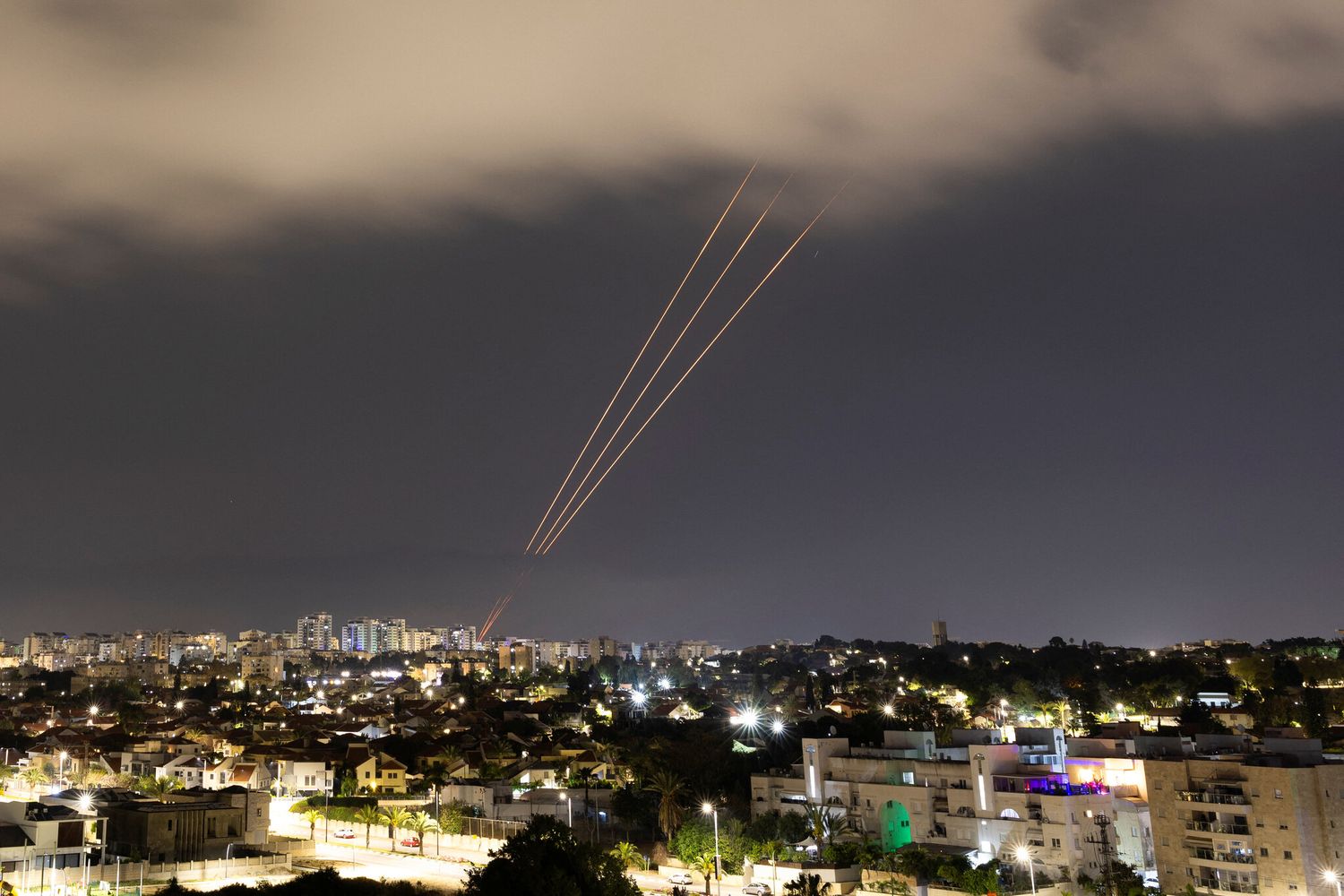Israel-Gaza War
Israel Reports Minimal Damage Following Major Iranian Assault
Iran launched a comprehensive strike against Israel, deploying a large number of drones and missiles from its territory. Despite the scale of the attack, Israeli officials have reported that the damage inflicted was minimal, thanks to the country's robust air defense systems and the assistance of its allies.
The assault, which occurred late on Saturday, was in retaliation for an Israeli airstrike earlier this month on an Iranian embassy complex in Damascus, Syria. That strike resulted in the deaths of several Iranian military officers, further straining the already tense relations between the two nations.
According to the Israeli Defense Forces (IDF), the Iranian attack involved more than 300 drones and missiles, marking one of the most significant direct confrontations between Iran and Israel in recent years. The IDF stated that its air defense systems, including the Iron Dome, David's Sling, and the Arrow system, were activated in response to the incoming threats, successfully intercepting the majority of the projectiles.
The United States and the United Kingdom also played a crucial role in thwarting the attack, with their forces downing several Iranian drones outside of Israeli airspace. This international collaboration underscored the strategic partnerships Israel has fostered, particularly with the U.S., which has long been a staunch ally of the Jewish state.
Despite the scale of the Iranian offensive, Israeli officials have reported that the damage caused was "very light," with no significant injuries or fatalities. This outcome is a testament to the effectiveness of Israel's air defense capabilities and its preparedness for such scenarios.
In the Persian Gulf, tensions escalated further when Iranian forces seized a container ship with links to Israel. The MSC Aries, owned by an affiliate of Zodiac Maritime, was boarded by Iranian authorities as it passed through the Strait of Hormuz. The U.S. National Security Council condemned the seizure, labeling it an act of piracy and a violation of international law.
The attack and the subsequent seizure of the ship have heightened concerns about the potential for a broader regional conflict. The Middle East has long been a volatile region, with Iran and Israel being archenemies. Both nations have engaged in a shadow war for years, with Israel targeting Iranian interests in Syria and Iran supporting armed groups opposed to Israel, such as Hezbollah in Lebanon and Hamas in the Gaza Strip.
Israeli Prime Minister Benjamin Netanyahu addressed the nation, emphasizing Israel's readiness to defend itself and retaliate if necessary. "Our defense systems are deployed, we are prepared for any scenario, both in defense and attack," Netanyahu stated, highlighting the resilience and strength of the Israeli public and its armed forces.
The international community is closely watching the developments, with many world leaders calling for restraint and a de-escalation of tensions. The United Nations has expressed concern over the potential for civilian casualties and the broader implications of the conflict on regional stability.
As the situation unfolds, the possibility of further escalation remains a significant concern. Both Israel and Iran possess considerable military capabilities, and a miscalculation by either side could lead to a wider conflict, drawing in other regional powers and possibly even global superpowers.
For now, the immediate crisis appears to have been contained, but the underlying tensions between Israel and Iran persist, with no clear path to resolution in sight. The international community remains on edge, hoping for a peaceful resolution to a conflict that has the potential to destabilize an already fragile region.

